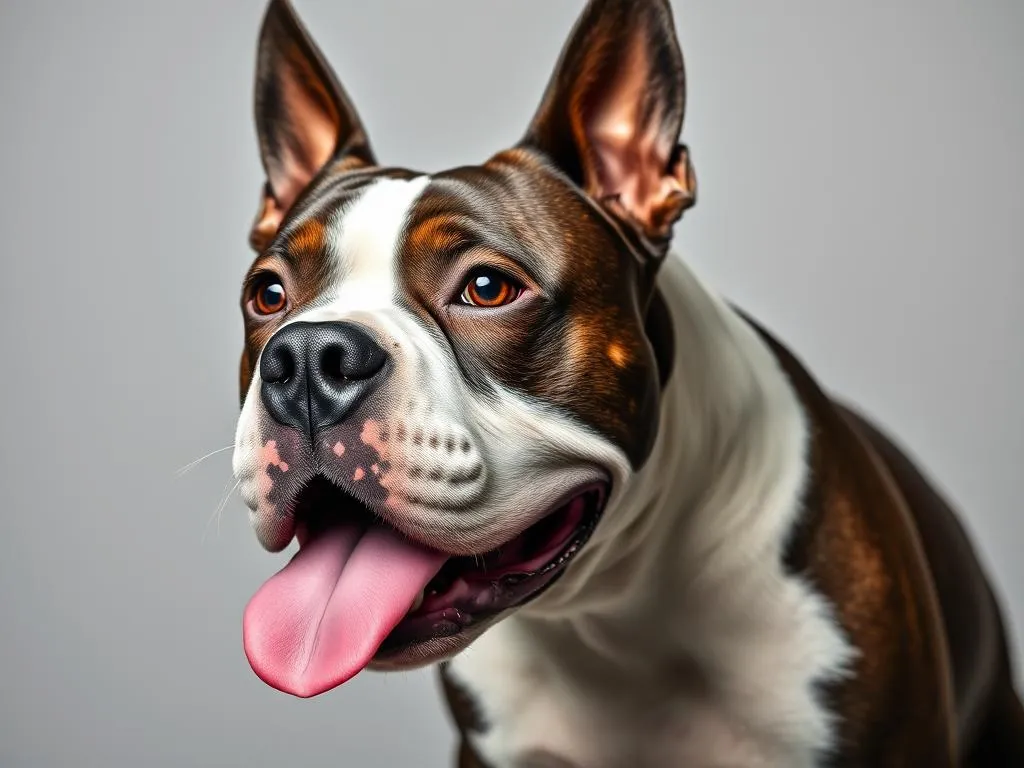
Introduction
Understanding different dog breeds is essential for anyone looking to bring a furry companion into their life. Each breed comes with its own unique traits, history, and care requirements, influencing not only the dog’s behavior but also how well it fits into your lifestyle. Among the myriad of dog breeds, the Boston Bull Terrier stands out for its playful nature and affectionate demeanor.
The Boston Bull Terrier, often affectionately referred to as the “Boston,” has a rich historical significance and a set of unique characteristics that endear it to many dog lovers. This article aims to provide comprehensive insights into the Boston Bull Terrier, exploring its history, physical traits, temperament, care requirements, health considerations, and more.
History of the Boston Bull Terrier
Origin and Development
The Boston Bull Terrier originated in the late 19th century in Boston, Massachusetts. The breed was developed by crossbreeding the now-extinct English Bulldog with various terrier breeds, particularly the English Terrier. The goal was to create a small, muscular dog with a friendly disposition, ideal for companionship. The breed’s creation was largely attributed to the efforts of Robert C. Hooper, who played a pivotal role in the early development of the breed.
Recognition and Popularity
The Boston Bull Terrier gained recognition as a distinct breed in 1893 when it was accepted into the American Kennel Club (AKC). Over the years, the breed’s popularity has surged, becoming one of the most beloved dog breeds in America. Its charm, intelligence, and affectionate nature have made it a favorite among families and singles alike, ensuring its place in the hearts of dog enthusiasts across the nation.
Physical Characteristics
Size and Weight
The Boston Bull Terrier is a compact and muscular dog, typically standing between 15 to 17 inches tall at the shoulder. Their weight usually ranges from 10 to 25 pounds, making them suitable for various living environments, including apartments. Compared to similar breeds, such as the French Bulldog, the Boston tends to be slightly taller and more athletic in build.
Coat and Color
One of the defining features of the Boston Bull Terrier is its short, smooth coat, which requires minimal grooming. The breed commonly comes in a variety of color patterns, with brindle, seal, and black being the most prevalent. Many Boston Bull Terriers also exhibit white markings, particularly on the face, chest, and paws, adding to their visual appeal.
Distinctive Features
The Boston Bull Terrier is easily recognizable due to its distinct physical traits. They have a flat, square-shaped snout and large, expressive eyes that contribute to their charming appearance. Their ears can be either erect or cropped, and their build is compact and muscular, showcasing their strength and agility.
Temperament and Behavior
General Temperament
The Boston Bull Terrier is known for its friendly, intelligent, and affectionate temperament. They thrive on human interaction and are known to form strong bonds with their families. Their playful nature makes them excellent companions for children and adults alike, often displaying a sense of humor that endears them to everyone around them.
Common Behavioral Traits
These dogs are generally playful and energetic, requiring regular exercise to keep them happy and healthy. While they are typically well-behaved, some Boston Bull Terriers may exhibit stubbornness or anxiety if not properly trained or socialized. Early socialization and consistent training can mitigate these potential issues, ensuring a well-adjusted pet.
Care and Maintenance
Diet and Nutrition
A balanced diet is crucial for maintaining the health of your Boston Bull Terrier. High-quality dog food, whether dry or wet, should be provided, tailored to their age, size, and activity level. Generally, feeding guidelines recommend two meals per day, with portion sizes adjusted based on the dog’s weight and energy needs. It’s essential to avoid overfeeding, as this breed can be prone to obesity.
Grooming Needs
Due to their short coat, grooming requirements for the Boston Bull Terrier are relatively low. Regular brushing can help reduce shedding and keep the coat healthy, while baths should be given as needed. Nail trimming is also important and should be done every few weeks to prevent overgrowth and discomfort.
Exercise Requirements
Regular exercise is vital for the Boston Bull Terrier to maintain physical and mental well-being. Daily walks, playtime, and activities that stimulate their minds, such as puzzle toys or obedience training, are highly beneficial. Socialization with other dogs and exposure to various environments can also help prevent behavioral issues and enhance their adaptability.
Health Considerations
Common Health Issues
While the Boston Bull Terrier is generally healthy, they are at risk for certain genetic disorders and health issues. Brachycephalic syndrome is common in dogs with flat faces, leading to breathing difficulties. Other conditions to be aware of include hip dysplasia, cataracts, and patellar luxation. Regular veterinary check-ups and health screenings are recommended to catch any potential issues early.
Lifespan Expectations
The average lifespan of a Boston Bull Terrier ranges from 10 to 15 years, depending on genetics, diet, and overall care. Proper exercise, a balanced diet, and regular veterinary visits play a significant role in enhancing their longevity and quality of life.
Training and Socialization
Basic Training Techniques
Early training is essential for a well-behaved Boston Bull Terrier. Effective methods include housebreaking, basic obedience commands, and leash training. Positive reinforcement, such as treats and praise, is highly effective for this intelligent breed. Consistency in training methods will yield the best results.
Socialization Strategies
Socialization is crucial for preventing behavioral problems in Boston Bull Terriers. Introduce them to a variety of environments, people, and other pets from a young age. Puppy classes or dog parks can provide excellent opportunities for socialization, helping them develop into well-rounded adults.
Living with a Boston Bull Terrier
Compatibility with Various Lifestyles
Boston Bull Terriers are incredibly adaptable, making them suitable for various lifestyles. They thrive in family settings, are great companions for singles, and can be wonderful pets for seniors as well. Their moderate exercise needs make them well-suited for apartment living, although they also enjoy having space to play in homes with yards.
Cost of Ownership
When considering a Boston Bull Terrier, it’s essential to factor in the initial purchase price and ongoing costs. The average price for a puppy can range from $1,000 to $3,000, depending on pedigree and breeder reputation. Additionally, ongoing costs include food, regular veterinary care, grooming, and potential training classes. It’s wise to consider unforeseen expenses, such as medical emergencies, when budgeting for your new pet.
Conclusion
In summary, the Boston Bull Terrier is a remarkable breed known for its friendly nature, adaptability, and unique physical characteristics. Understanding their needs in terms of care, training, and socialization is crucial for any prospective owner. With their affectionate disposition and playful spirit, they can be wonderful companions for a variety of lifestyles.
If you’re considering welcoming a Boston Bull Terrier into your home, take the time to evaluate your lifestyle and ensure that you can meet their needs. With proper care and attention, a Boston can become a beloved member of your family for many years to come.









